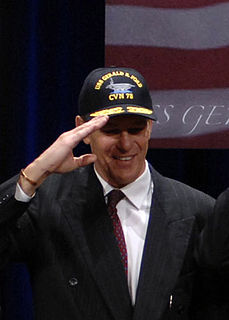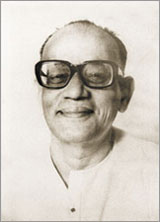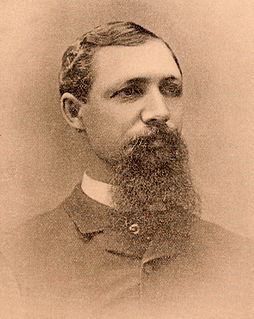A Quote by Charles Dickens
"Well," said my aunt, "this is his boy - his son. He would be as like his father as it's possible to be, if he was not so like his mother, too."
Related Quotes
When the father dies, he writes, the son becomes his own father and his own son. He looks at is son and sees himself in the face of the boy. He imagines what the boy sees when he looks at him and finds himself becoming his own father. Inexplicably, he is moved by this. It is not just the sight of the boy that moves him, not even the thought of standing inside his father, but what he sees in the boy of his own vanished past. It is a nostalgia for his own life that he feels, perhaps, a memory of his own boyhood as a son to his father.
A certain monk told me that when he was very sick, his mother said to his father, "How our little boy is suffering. I would gladly give myself to be cut up into pieces if that would ease his suffering." Such is the love of God for people. He pitied people so much that he wanted to suffer for them, like their own mother, and even more. But no one can understand this great love without the grace of the Holy Spirit.
Sir Walter, being strangely surprised and put out of his countenance at so great a table, gives his son a damned blow over the face. His son, as rude as he was, would not strike his father, but strikes over the face the gentleman that sat next to him and said, "Box about: twill come to my father anon."
On occasion I have observed parents shopping to clothe a son about to enter missionary service. The new suits are fitted, the new shoes are laced, and shirts, socks, and ties are bought in quantity. I met one father who said to me, 'Brother Monson, I want you to meet my son.' Pride popped his buttons; the cost of the clothing emptied his wallet; love filled his heart. Tears filled my eyes when I noticed that his [the father's] suit was old, his shoes well worn; but he felt no deprivation. The glow on his face was a memory to cherish.
And he arose and came to his father. But while he was still a long way off, his father saw him and felt compassion, and ran and embraced him and kissed him. And the son said to him, 'Father, I have sinned against heaven and before you. I am no longer worthy to be called your son. But the father said to his servants, 'Bring quickly the best robe, and put it on him, and put a ring on his hand, and shoes on his feet. And bring the fattened calf and kill it, and cet us eat and celebrate. For this my son was dead, and is alive again; he was lost, and is found.' And they began to celebrate.
His mother got her purse. His father reached for the door. "Scooter," he said, by way of good-bye, "have fun with your friends." But Hale was shaking his head. He put his arm around Kat's shoulders. "She's not my friend, Dad. She's my girlfriend." Hale's parents must have walked away, but Kat wasn't looking. She was too busy staring up at Hale, trying to see into his eyes and know if he was okay. The sadness that had lingered for weeks was fading, and the boy that held her was the boy she knew. A boy who kissed her lightly.
'East of Eden' is an important story for me. It's about a kid that's misunderstood and feels like he's not loved by his father. It's a very father-son kind of story, and it's not until the end that they sort of make up. I like that because every boy has trouble with his father, so it's very relatable.
Jesus Christ was the only one capable of performing the magnificent Atonement because He was the only perfect man and the Only Begotten Son of God the Father. He received His commission for this essential work from His Father before the world was established. His perfect mortal life devoid of sin, the shedding of His blood, His suffering in the garden and upon the cross, His voluntary death, and the Resurrection of His body from the tomb made possible a full Atonement for people of every generation and time.
Rattigan's world demanded unwavering trust in principles, loyalty, and virtue. At the time of this play - Rattigan was writing this play in 1947 about an incident that took place in 1914 - should a boy say he didn't do something, his father would believe him; a British father would take the defense of his son's honor to his grave.
Zagreus was the son of Zeus. He was slain by the Titans, buried at the foot of Mount Parnassus, and rose from the dead as Dionysos. He was the god of fruit and wine. Like those of Christ his most devoted followers were women. He is the beloved son and occupies a throne at the right hand of his father, Zeus. His empty tomb at Delphi was long preserved by his devotees as proof of his death, and resurrection.






































